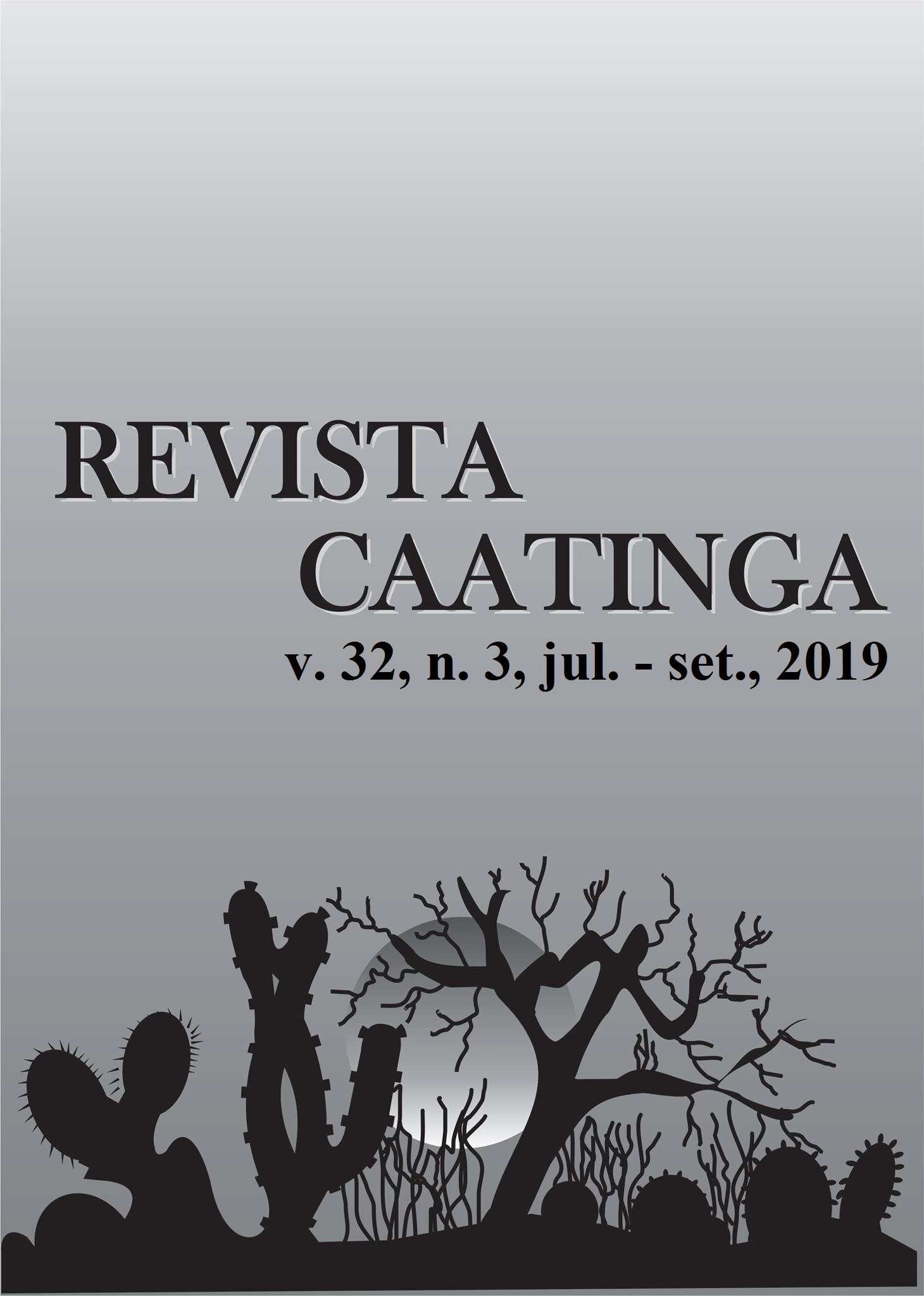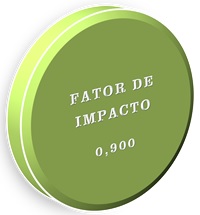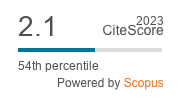EFFECT OF COMPETITION ON THE INTERACTION BETWEEN MAIZE AND WEED EXPOSED TO WATER DEFICIENCY
DOI:
https://doi.org/10.1590/1983-21252019v32n316rcKeywords:
Zea mays. Bidens pilosa. Urochloa decumbens. Growth. Water stress.Abstract
The ability of plants to adapt to water deficient conditions in soil is directly related to the competitive ability of each species. The objective of the present study was to evaluate the effects of water deficiency and interspecific competition on the growth components of maize (Zea mays), brachiaria (Urochloa decumbens), and hairy beggarticks (Bidens pilosa L). The experimental design was in randomized blocks, with eight replications. The treatments were arranged in a 5 × 2 factorial design, with the first factor corresponding to the different competitive arrangements among species (maize + U. decumbens, maize + B. pilosa, maize without competition, U. decumbens without competition, and B. pilosa without competition). The second factor constituted two water regimes (daily irrigation and water deficit). The soil water deficient condition strongly decreased maize plant growth; however, it had little or no effect on the growth of weeds U. decumbens and B. pilosa. Interspecific competition decreased the growth of maize plants and U. decumbens, and intensified the negative effects of water deficiency on these species. Interspecific competition and water deficiency also decreased the N, P, and K content in maize plants, which contributed to the effects on plant growth. U. decumbens was more competitive with maize compared to B. pilosa.
Downloads
Downloads
Published
Issue
Section
License
Os Autores que publicam na Revista Caatinga concordam com os seguintes termos:
a) Os Autores mantêm os direitos autorais e concedem à revista o direito de primeira publicação, com o trabalho simultaneamente licenciado sob a Licença Creative Commons do tipo atribuição CC-BY, para todo o conteúdo do periódico, exceto onde estiver identificado, que permite o compartilhamento do trabalho com reconhecimento da autoria e publicação inicial nesta revista, sem fins comerciais.
b) Os Autores têm autorização para distribuição não-exclusiva da versão do trabalho publicada nesta revista (ex.: publicar em repositório institucional ou como capítulo de livro), com reconhecimento de autoria e publicação inicial nesta revista.
c) Os Autores têm permissão e são estimulados a publicar e distribuir seu trabalho online (ex.: em repositórios institucionais ou na sua página pessoal) a qualquer ponto antes ou durante o processo editorial, já que isso pode gerar alterações produtivas, bem como aumentar o impacto e a citação do trabalho publicado (Veja O Efeito do Acesso Livre).







